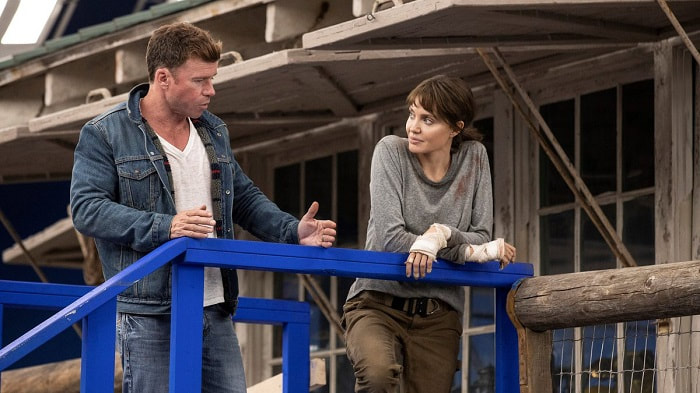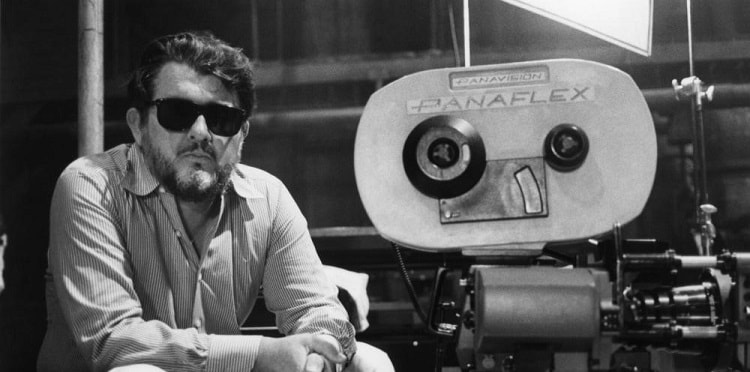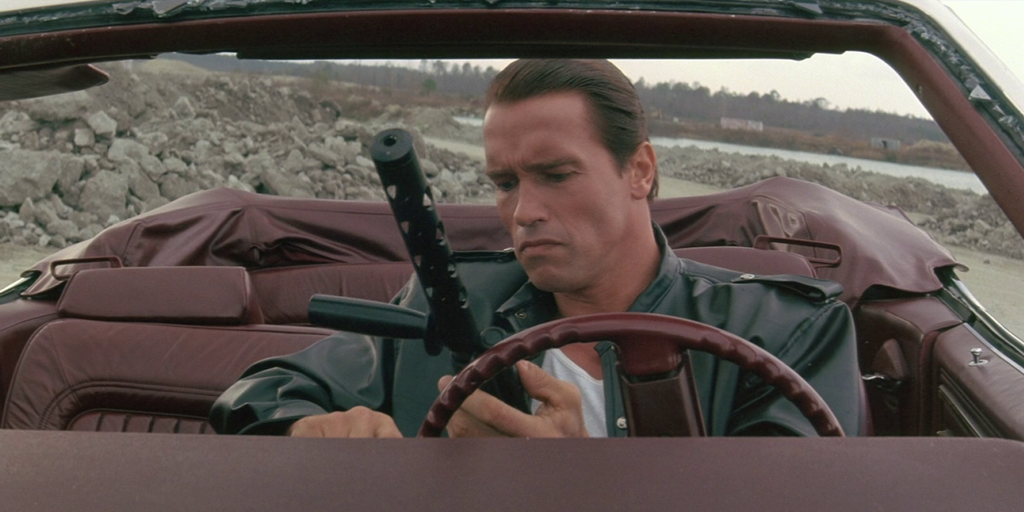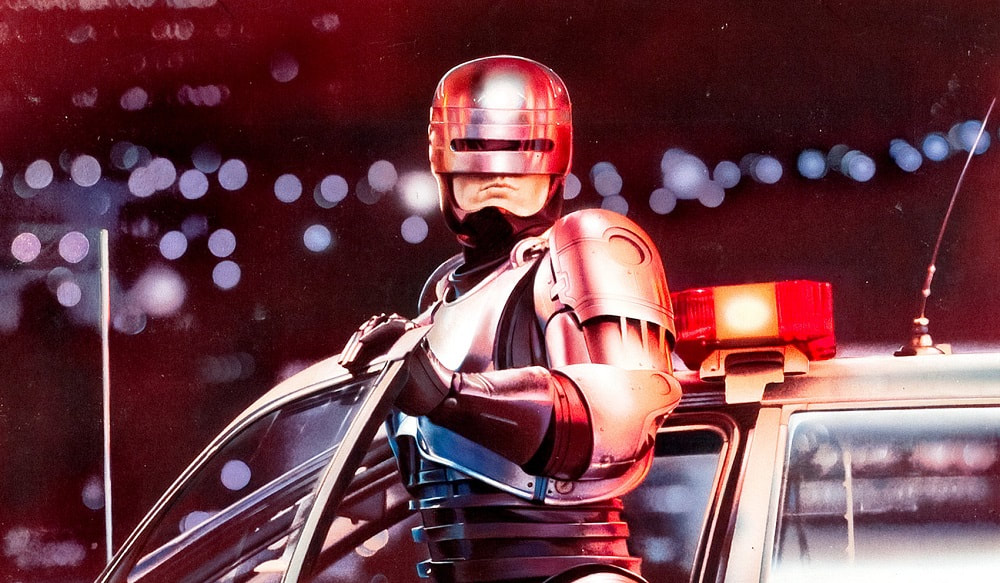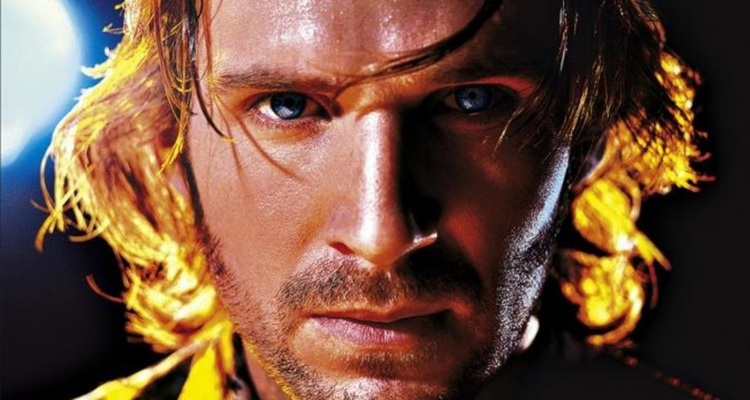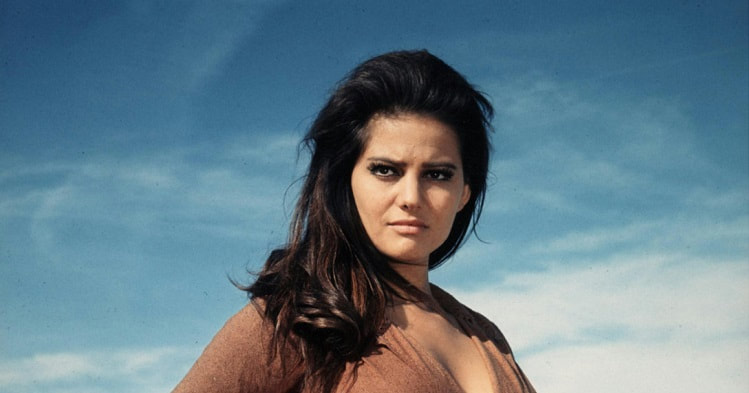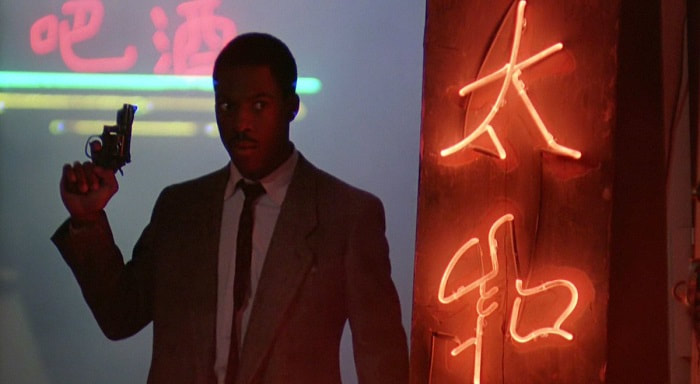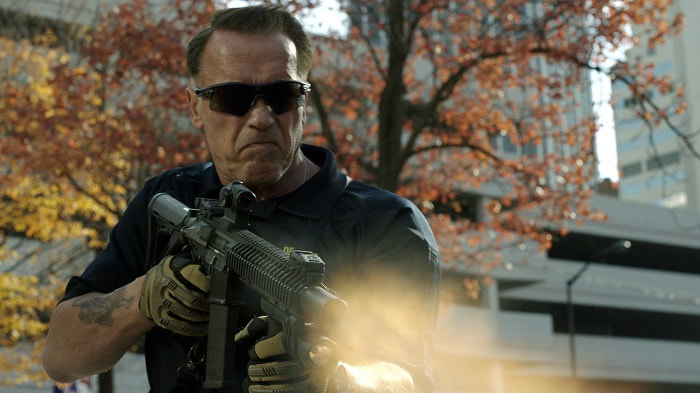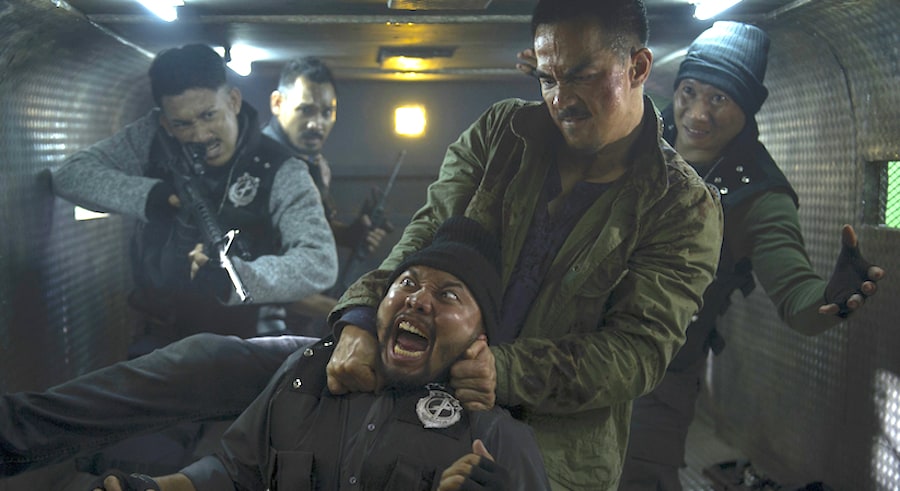|
Right now, Taylor Sheridan is riding high. The Texan writer-director has no less than three current, successful TV series in the States - neo-Western Yellowstone which stars Kevin Costner, its historical prequel 1883, and the crime drama Mayor of Kingstown. These have all been critical and ratings hits, particularly Yellowstone which is now five seasons in. Sadly, few people have heard of these shows in the UK, let alone seen them, due to Paramount’s absurd but apparently lucrative licensing strategy which has kept them off British screens.
While Sheridan is currently building a TV empire at a breakneck pace, his success is rooted in his writing for film. He made his name as the writer of Sicario (2015), the superbly tense Mexican drug war thriller directed by Denis Villeneuve. For David Mackenzie’s Hell or High Water (2016), he received a slew of award nominations, including for the Academy, BAFTA, and Golden Globe Awards for Best Original Screenplay. His subsequent films Wind River (2017), Sicario: Day of the Soldado (2018) and Those Who Wish Me Dead (2021) have all reinforced his personal slate of tough, terse movies about life or death situations on “the modern American frontier”. In a few short years, Sheridan has been transformed from a bit-part actor on Sons of Anarchy into a major power player. Today’s screenwriters are almost anonymous, but Sheridan has some of the same name recognition and kudos once reserved for guys like Shane Black. He’s achieved all of this while bucking trends - in a far cry from the ceaseless deluge of superhero sequels we’ve been in for fifteen years, his movies are unambiguously written for grown-ups. Each of his five best films have been a key step in that transformation, which is why it’s worth recommending them each in turn.
0 Comments
Walter Hill may be the single greatest ever director of American action movies. Certainly, few directors working in the U.S. have made as many important and enduring films in the genre. Hill once memorably said, "all of my films are westerns", and it's a statement that is crucial to understanding his work. Since the mid-1970s, Hill has made tough, masculine movies about characters surviving in environments where law and order has broken down or does not exist.
Hill is also an accomplished writer, known for his terse and minimalist style which has helped to shape the unique worldview of his movies. In addition to his firm handling of action, he is also a great visual stylist and often injects humour into his life-and-death scenarios. As Hill said in another memorable description of his work, "the jokes are funny but the bullets are real." Besides his own work as writer-director, Hill has also co-written notable movies made by others, notably Ridley Scott's Alien (1979). The capsule reviews below, presented in chronological order, are taken (and slightly edited) from my Letterboxd profile. Follow me there for more reviews, primarily of action movies from around the world.
An Action Canon is a new series focusing on the action movies that, for me, represent the best and most important entries in the genre. Each entry will look at what makes the film special, and how it fits into the overall history of action movies.
Flash Point combines the talents of director Wilson Yip and star Donnie Yen, two of the foremost individuals who kept the fire of Hong Kong action cinema burning in the 2000s. The two had worked together before, and would do so again, but Flash Point is arguably the film on which their abilities really clicked for the first time. On this project, Yip and Yen helped to prove that Hong Kong action movies still had some fight left in them, and set the stage for their later collaborations - notably the Ip Man series.
An Action Canon is a new series focusing on the action movies that, for me, represent the best and most important entries in the genre. Each entry will look at what makes the film special, and how it fits into the overall history of action movies. Catch up withNo. 1 here, which focuses on RoboCop (1987).
Raw Deal was made at the height of the action movie rivalry between Schwarzenegger and Stallone. In 1986, Stallone had a $160 million smash with Cobra, which has been rewarded with cult status in recent years. Raw Deal was Arnold’s effort released a month later and got, well - a raw deal, barely making any money despite costing only $12 million to make. As a result, this minor classic very capably directed by John Irvin quickly fell into relative obscurity. On April 1, the movie will get another chance to impress, when it will be added to Netflix.
At first glance, Raw Deal looks like a typical ‘80s Schwarzenegger movie. In fact, it was the middle entry out of only three action films he made during the decade which doesn’t have a sci-fi or fantasy element. It also has a story by the writers of Sergio Leone westerns, shares its editor with Lawrence of Arabia, and features the immortal line “you should not drink and bake.” In a small way, its failure even helped its star become a Hollywood power player in the 1990s. Crucially, Raw Deal is just a fun and very solidly made action film with all the squib-filled shootouts, car chases, explosions, and questionable fashion choices that are in such short supply today. It has no high-minded intentions or a universal message, but it does feature the biggest action star in the world driving a Buick through a quarry, taking out a score of bad guys with a submachine gun, and blasting “Satisfaction” by the Stones - which must count for something.
An Action Canon is a new series focusing on the action movies that, for me, represent the best and most important entries in the genre. Each entry will look at what makes the film special, and how it fits into the overall history of action movies.
In a dystopian near future Detroit, police officer Alex Murphy is murdered and subsequently resurrected as a sophisticated law enforcement cyborg. RoboCop is expected to clear the way for the demolition of the crime-ridden, impoverished Old Detroit so that the gleaming Delta City can be built in its place. Instead, Murphy takes on the two corrupt entities that run the city and which share a symbiotic relationship - the vicious street gang that killed him, and the ruthless corporation which remade him.
A controversial Dutch director whose only previous English-language production had been a major flop; a script by two men with no prior experience of screenplays; and a star who had appeared only in a string of obscure, mostly unsuccessful movies. These are not the expected ingredients of a major hit in Hollywood, much less a film with a lasting impact on pop culture - yet that was what RoboCop became following its release in the summer of 1987.
While many people can reel off a list of their favourite Christmas movies, far fewer would be able to think of even one film they love set at New Year. It makes sense, because while Christmas is a time for staying in with movies, New Year is normally a time for going out and making dubious choices under the influence of alcohol. Clearly, these are not normal times and so I made the safe and eminently sensible choice to stay in and watch Strange Days, which is that rare thing - a notable New Year movie.
Directed by Kathryn Bigelow and released in October 1995, Strange Days is a science fiction thriller set at that most unique New Year - during the last two days of 1999, leading up to the dawn of the new millennium. While it received some good reviews, the film was a catastrophic flop on release and made just $8 million in the US against a $42 million budget, which probably knocked Bigelow off the studio’s Christmas card list. For this reason, combined with the difficulty in seeing the film until recently, Strange Days has languished in relative obscurity, a footnote to the director’s now much more successful career. However, a small cult following regards it as a minor classic - and they’re right.
In 1966, American film director Richard Brooks needed a hit. He had recently made Lord Jim, an epic adaptation of Joseph Conrad’s novel which had opened to poor reviews and a worse box-office return. His plan to get back on top surprised Hollywood insiders: he would adapt A Mule for the Marquesa, a recent Western novel by Frank O’Rourke. Released under the title The Professionals, Brooks’ new film would go on to become one of the most profitable Westerns of the 1960s, taking $9 million in the US alone.
Today, The Professionals is often overshadowed by other classic American Westerns of the 1960s, not to mention the best of the Italian Westerns that came to prominence at that time. It is sometimes described as a merely “crowd-pleasing”, or “undemanding” film - one that delivers excitement but asks little of its audience. In fact, The Professionals is more than just box-office dynamite - it’s a gripping but also thoughtful movie, with a terrific script that reflects Brooks’ ideas about life, death, loyalty, and revolution. It’s this combination of action, humour, solid craft, and big ideas that make the movie an unmissable Western.
Note: the audio version of this piece is re-written compared with the original below
In 2017, the BFI published an article about the "17 rare times when a director made five or more great films in a row". This being the BFI, their choices were mostly on the Criterion-approved, arty end: Anderson, Tarkovsky, Antonioni, and so on. For me, one name sprang immediately to mind, one much less adored in cineaste circles: Walter Hill.
Now more or less retired, Hill has had a fascinating and varied career which began in the late 1960s. As an uncredited second assistant director on Bullitt (1968), he was responsible for keeping bystanders from walking out into the street while the car chases were being shot in San Francisco. Later, he decided to focus on screenwriting, explicitly as a route to directing. By 1975 he was in the director's chair, having written a number of scripts including for Sam Peckinpah's mid-career hit The Getaway (1972). There's a ton of memorable scenes in Brian de Palma's Scarface (1983), but one of the best sees Miami drug lord Tony Montana (Al Pacino) making his drunken, drugged exit from a fancy restaurant. "Say goodnight to the bad guy", he slurs at the shocked diners, "it's the last time you gonna see a bad guy like me, let me tell you." De Palma's lurid film of '80s excess is smarter than it is often given credit for, and this scene is one reason. It's about how we're simultaneously fascinated and repelled by "bad guys", both in real life and in the movies.
David Ayer is another director who is as fascinated by bad guys as De Palma - he has a special interest in bad guys that ostensibly should be good. Corrupt cops have featured in several of the films he has written and directed, including Training Day (2001), Dark Blue (2003) and Street Kings (2008). Of these films, Training Day is the most reputable - it earned star Denzel Washington a Best Actor Oscar, and made Ayer's name. At the other end of the spectrum, there's Sabotage (2014). I can't help thinking that if I was Gareth Evans, I'd be a little upset with Netflix. Just one week after the streaming giant released Evans' cult-themed horror Apostle, they have put out a movie transparently based on his own Raid series. It's hard not to suspect that the timing of The Night Comes For Us is designed at least partly to capitalise on the segment of Evans' fanbase who are disappointed that he chose not to make The Raid 3 (myself included).
While Timo Tjahjanto is a capable director in his own right, with his own ideas, the similarity of The Night Comes For Us to Evans' own movies is very striking. It's not just the presence of series acting veterans Joe Taslim, Iko Uwais, Julie Estelle and Zack Lee - much of the visual style, plotting, and (limited) characterisation is very much in the same vein. While Joe Taslim is our antihero here, and Iko Uwais an antagonist with limited screen time, this is to all intents and purposes an unofficial The Raid 3. |
About
Exploring classic science fiction, with a focus on the 1950s to the 1990s. Also contributing to Entertainium, where I regularly review new games. Categories
All
|
